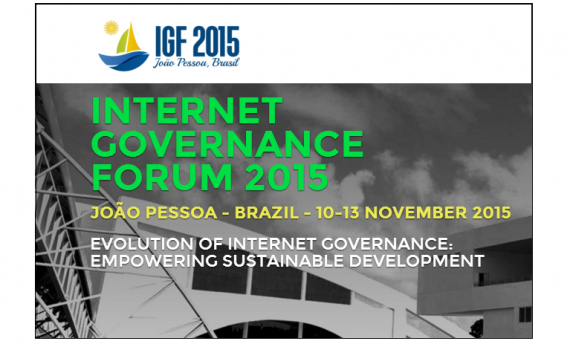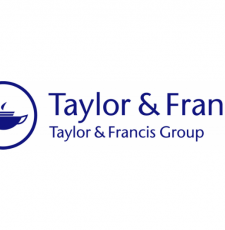
EIFL is collaborating with IFLA (the International Federation of Library Associations and Institutions) to champion libraries as a crucial gateway to the internet for billions of unconnected people at the 10th Internet Governance Forum - IGF 2015 – to be held in João Pessoa, Brazil, from 10 to 13 November.
EIFL Public Library Innovation Programme (EIFL-PLIP) manager Ramune Petuchovaite, and Stuart Hamilton and Christina de Castell from IFLA, will lead the meeting of the Dynamic Coalition on Public Access in Libraries (DC-PAL) and take part in the IGF 2015 plenary sessions, discussing policy papers from a range of Dynamic Coalitions that address different aspects of internet governance.
IGF 2015 has for the first time introduced a main session providing a platform for the Dynamic Coalitions to present their work. During this meeting on 12 and 13 November, DC-PAL will table a policy paper for multi-stakeholder discussion.
KEY PRINCIPLES ON PUBLIC ACCESS IN LIBRARIES
The paper states key principles on public access in libraries, as follows:
- Libraries should be recognized as an existing vehicle for ensuring universal internet access and be used when available to initiate infrastructure and connectivity for all.
- Governments should provide an enabling environment for universal access to information by providing policy and legislation (including allocation of funds where needed) to support the role of libraries in providing public access to ICTs, internet connectivity, related training and access to information and knowledge so that all people can participate fully in society.
- Libraries should be supported in their role of offering training and skills development for technology, information and media literacy to all.
- Individuals have the right to privacy when they seek information; internet users in libraries must not be subject to surveillance of their activities.
- Libraries should be supported in enabling the creation of local content and in promoting and providing online access to local, government and open access content.
Click here to read the full DC-PAL principles document.
WHAT CAN LIBRARIES DO TO CONNECT THE NEXT BILLION?
A separate DC-PAL meeting, organized by EIFL and IFLA during each annual meeting of the IGF, brings together stakeholders from civil society, government, business, and international organizations.
This year, the meeting will focus on what stakeholders can do to support public access to the internet in libraries. The meeting will inform and inspire the future work of the Dynamic Coalition.
The main questions to be explored at this meeting are: How do we ensure that we connect the next billion when technology and connectivity do not yet reach across the globe? How can libraries realize their potential to connect the next billion, and overcome the challenges of limited infrastructure?
Speakers from the Mozilla Foundation and the new initiative Global Connect’ have confirmed that they will attend the DC-PAL meeting.
Join us in João Pessoa, Brazil, at the following sessions:
- November 12 at 11.00 am in the Room 6: Dynamic Coalition on Public Access in Libraries
- November 12 at 4.30 pm in the Main meeting room: Main session on Dynamic Coalitions (Part 1)
- November 13 at 9.00 am in the Main meeting room: Main session on Dynamic Coalitions (Part 2)
Read more about IGF 2015.
Find out more (intgovforum.org/cms/remote-participation) about remote participation.
BACKGROUND
The (intgovforum.org/cms/remote-participation) Dynamic Coalition on Public Access in Libraries (DC-PAL) was created by EIFL and IFLA at the Internet Governance Forum in 2011. DC-PAL aims to engage the IGF community in discussion about public access to the internet and the role and potential of libraries in supporting the goal of universal access to the internet.
The Internet Governance Forum (IGF) brings together people from various stakeholder groups as equals, in discussions on public policy issues relating to the internet. While there is no negotiated outcome, the IGF informs and inspires those with policy-making power in both the public and private sectors.
SHARE / PRINT









